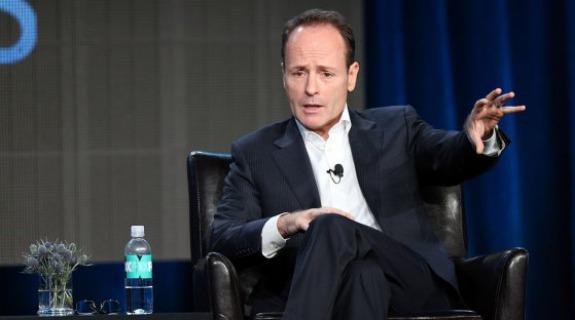FX Networks CEO John Landgraf called on the gatekeepers of the internet—like Google and Microsoft—to step up their efforts to fight pirated content on the web, while acknowledging that the entertainment industry isn’t keeping pace with consumers’ expectations for increased access to content across platforms and regions.
Landgraf said it was true that the industry “was a little bit behind the curve” when it came to making content more ubiquitous, and called himself a “relentless advocate” for giving consumers greater options for legally consuming programming.
But he was adamant that there is no foreseeable way for creative industries to be profitable in a future where piracy is allowed to continue at its current pace.
“i can understand the consumer’s frustrations with the pace that all of this is happening,” Landgraf told the Digital Entertainment World conference in Los Angeles Monday. “Ultimately what you want to figure out is how to support legitimate businesses that are trying to do this.”
Landgraf appeared alongside Rick Cotton, senior counselor for IP protection at NBC Universal, who cited recent research showing that 24 percent of all internet bandwidth is used for pirated content.
“Ultimately we need to get to is where it is more convenient for the consumer to get it legitimately,” Cotton said.
Both men praised companies like Google for taking steps to combat piracy, but said that it was time for them to step up their game, and take the burden off of the copyright holders.
“We need this young, Wild West industry, which now has some companies much larger than entertainment companies, to step up and join the league of adult citizens of the business community and take some responsibility in terms of investing in some resources,” Landgraf said.
Their call for increased action came on the same day that the non-profit Digital Citizens Alliance said that 30 of the largest pirated content sites will each make more than $4 million per year from major consumer brand advertising that is unknowingly placed on those sites.
“Ad profits are the tip of the iceberg,” said Digital Citizens Alliance Executive Director Tom Galvin in a statement. “These ad-supported rip-off websites are just a small sample of the sites that are profiting from theft, and with the internet population growing so quickly, we need to address this problem immediately.”
Cotton and Landgraf called for voluntary self-policing by the internet gatekeepers and others in the entertainment “ecosystem,” saying that was preferable to long, costly and drawn-out court battles. And both agreed that new laws may not work, since legislation can always have unintended consequences.
The bottom line, they agreed, was that internet gatekeepers have to take broader action against sites.
But neither man suggested sending in the calvary against individual users.
“I don’t think going after individual streamers the way the recording industry went after individual downloaders is the right strategy,” Landgraf said.
And while consumers may want content on-demand and everywhere, Landgraf and Cotton underscored the importance of shutting down the rip-off sites by citing data that showed piracy actually spiked in the immediate wake of the legal release of new shows and films.
“Ultimately we need to get to is where it is more convenient for the consumer to get it legitimately,” Cotton said.
Brief Take: The desire for content on demand on any screen isn’t going to dissipate, which means that as long as someone can provide a popular show or film for free with impunity, consumers who can’t find something legally will access it for free. The viewer at home doesn’t care about the studio’s bottom line.
Tags:













































__twocolumncontent.jpg)











